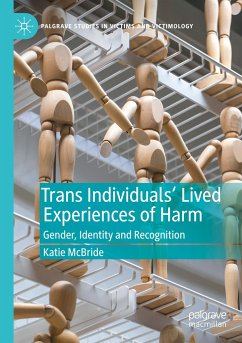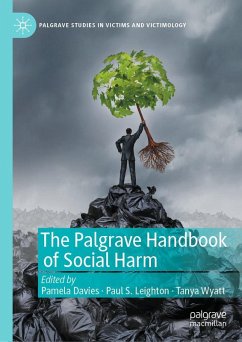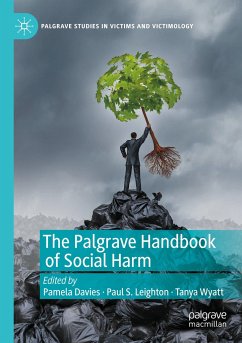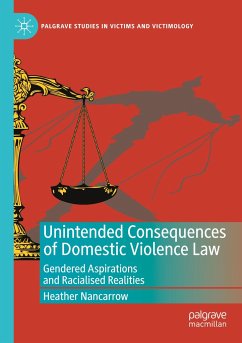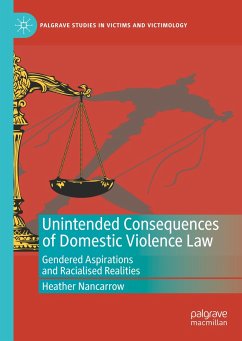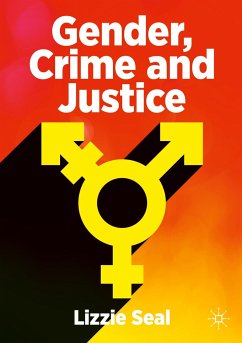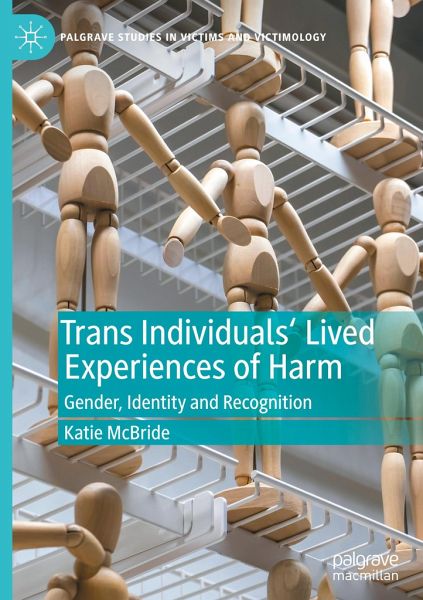
Trans Individuals Lived Experiences of Harm
Gender, Identity and Recognition
Versandkostenfrei!
Versandfertig in 6-10 Tagen
98,99 €
inkl. MwSt.
Weitere Ausgaben:

PAYBACK Punkte
49 °P sammeln!
This book explores how neoliberal consumer capitalist ideals of meritocracy, competitive individualism, and responsibilisation have shaped trans people's subjectivity and lived experiences of harm. The book critiques the adequacy of legal constructs of hate crime to acknowledge the social harms experienced. The deep ethnographic data illuminates a variety of social harms that result from the failure of social structures and systems to acknowledge gender identities beyond the binary. The book offers a historically grounded theorisation of anti-trans sentiment to produce a persuasive argument fo...
This book explores how neoliberal consumer capitalist ideals of meritocracy, competitive individualism, and responsibilisation have shaped trans people's subjectivity and lived experiences of harm. The book critiques the adequacy of legal constructs of hate crime to acknowledge the social harms experienced. The deep ethnographic data illuminates a variety of social harms that result from the failure of social structures and systems to acknowledge gender identities beyond the binary. The book offers a historically grounded theorisation of anti-trans sentiment to produce a persuasive argument for understanding the harms of hate as recognitive harms. In this sense, the book opens up a path to theorizing the empirically documented emotional and psychological harms of both transphobia and transnormative ideals, as rooted in a binary gender order that has been invigorated by the hyper individualism and competitiveness of capitalist neoliberalism.





